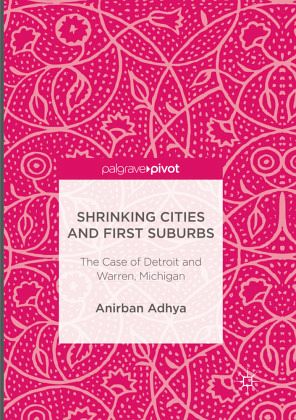
Shrinking Cities and First Suburbs
The Case of Detroit and Warren, Michigan
Versandkostenfrei!
Versandfertig in 6-10 Tagen
42,99 €
inkl. MwSt.
Weitere Ausgaben:

PAYBACK Punkte
21 °P sammeln!
This book examines Warren, a suburb of Detroit, Michigan, as a shrinking city facing a crisis of economic downturn, automotive restructuring, high unemployment, and real estate foreclosures. The author explores Warren's attempt to develop planning strategies, culturally-based initiatives, community design projects, and creative partnerships in the region in order to address the challenges of shrinkage and foreclosures at multiple scales. Global urban development is currently characterized by varied combination of metropolitan growth and urban core shrinkage. While much of the shrinkage is conc...
This book examines Warren, a suburb of Detroit, Michigan, as a shrinking city facing a crisis of economic downturn, automotive restructuring, high unemployment, and real estate foreclosures. The author explores Warren's attempt to develop planning strategies, culturally-based initiatives, community design projects, and creative partnerships in the region in order to address the challenges of shrinkage and foreclosures at multiple scales. Global urban development is currently characterized by varied combination of metropolitan growth and urban core shrinkage. While much of the shrinkage is concentrated in central cities, first suburbs are now facing the same problem. The Warren case illustrates opportunities for flexible policies combining rightsizing, shared maintenance, and incremental development in struggling first suburban communities, which are less studied and often ignored.












